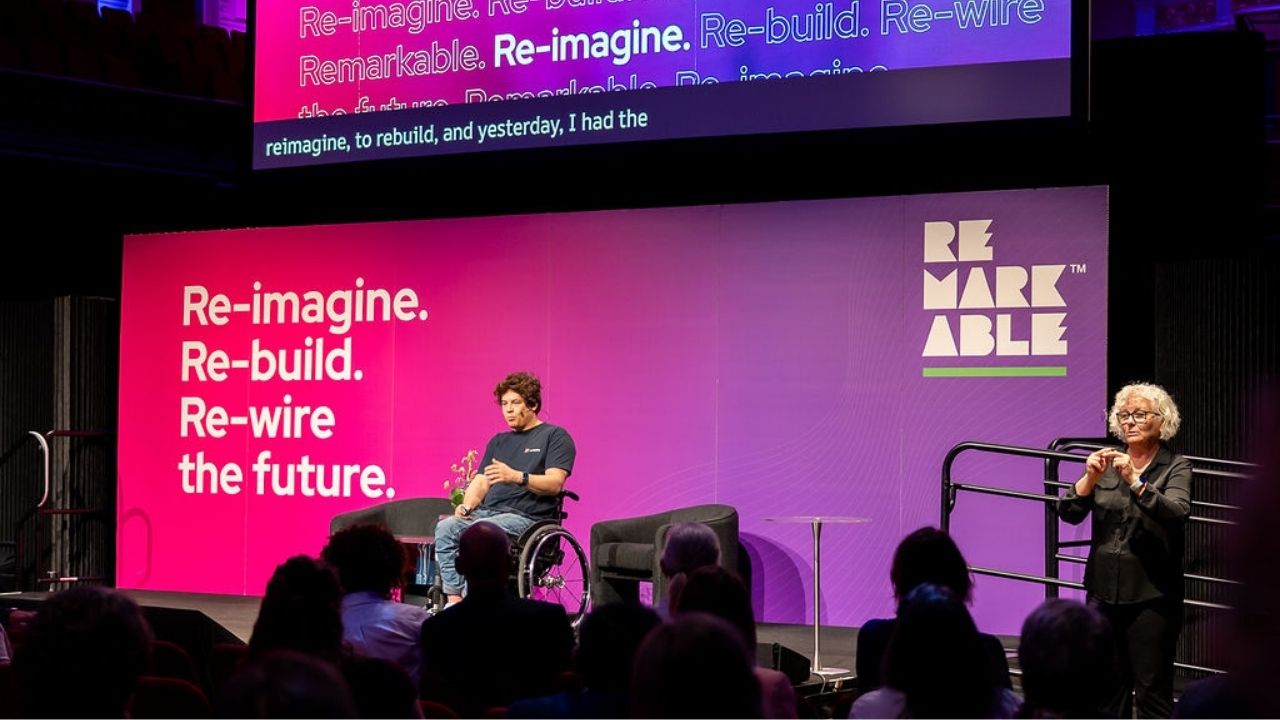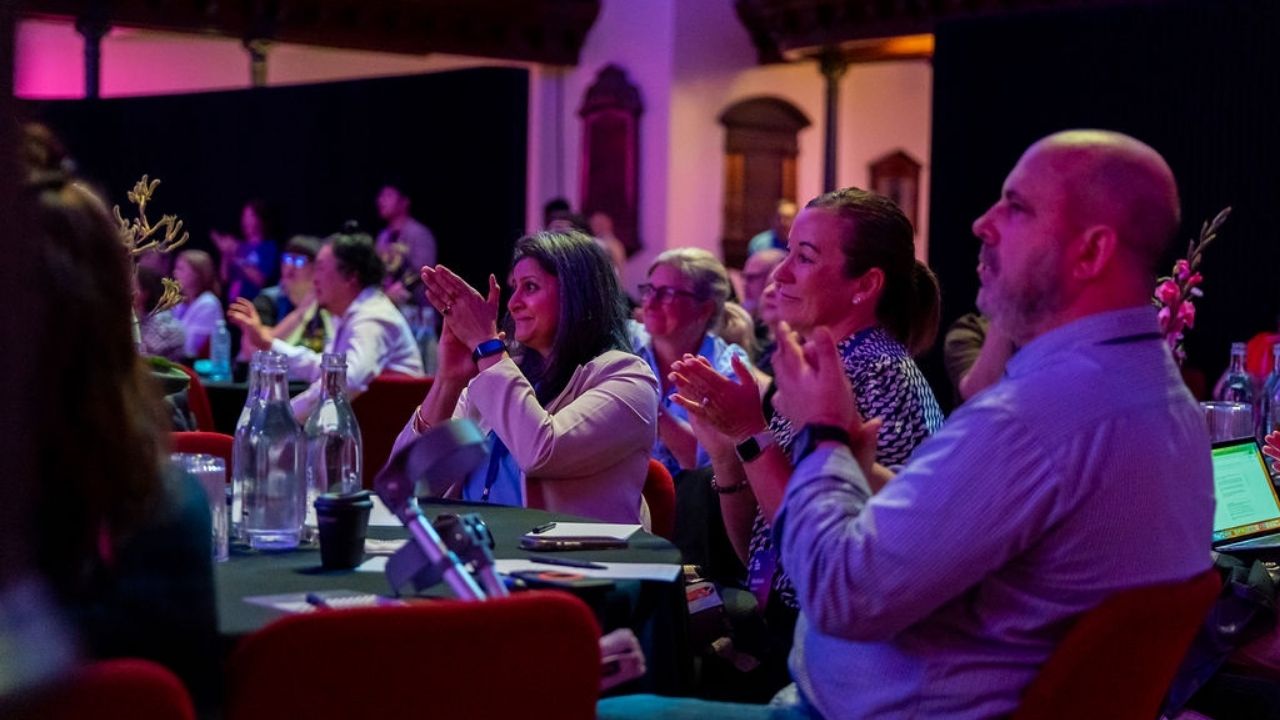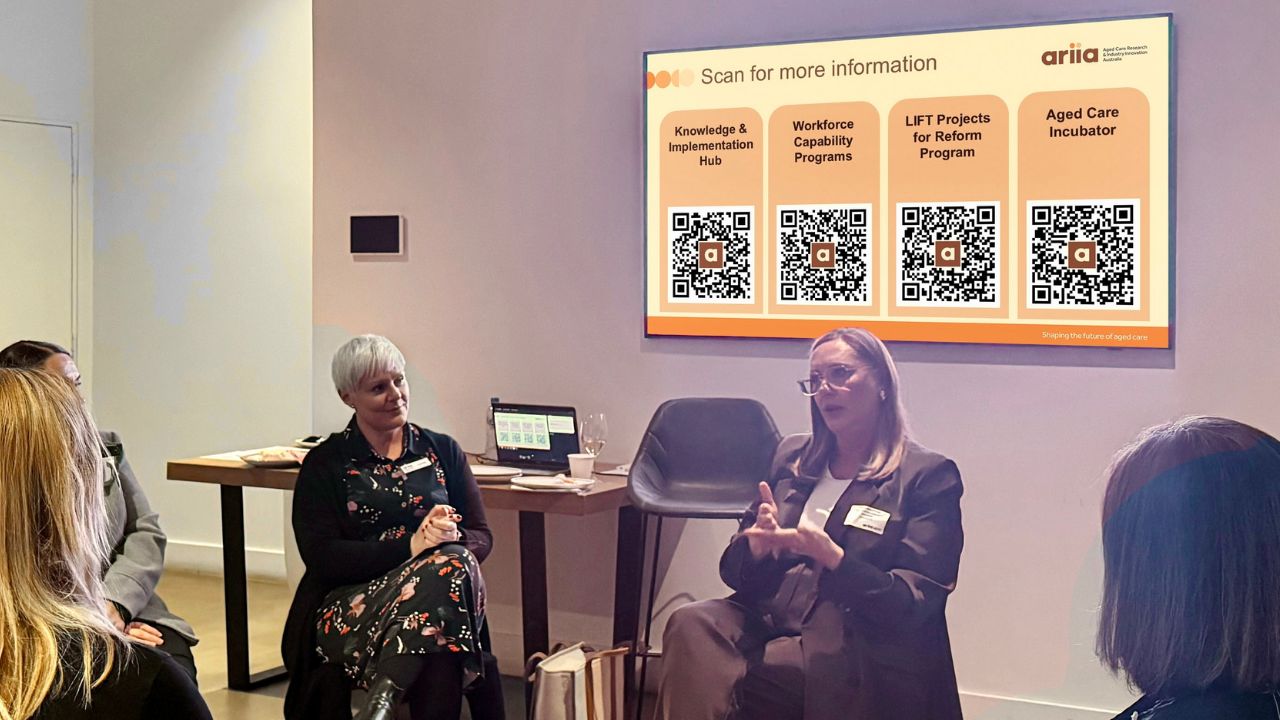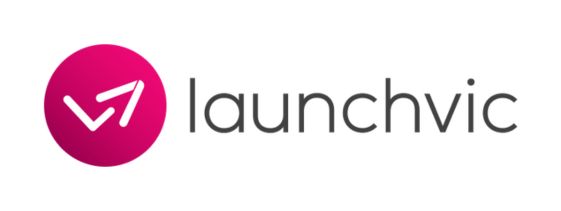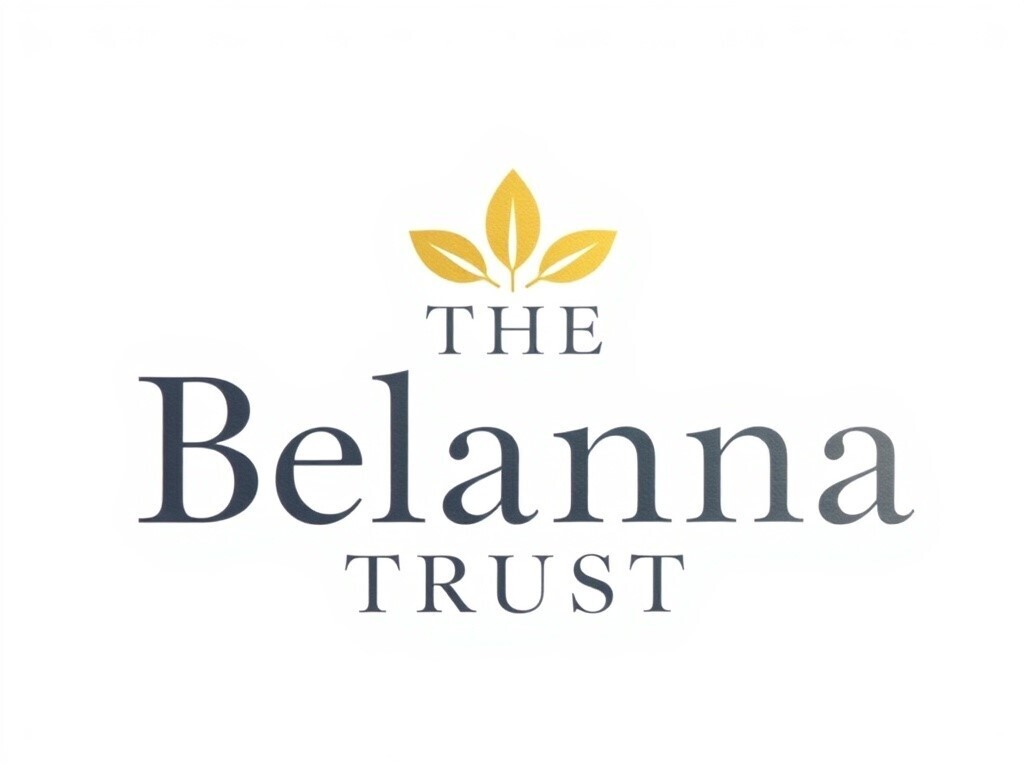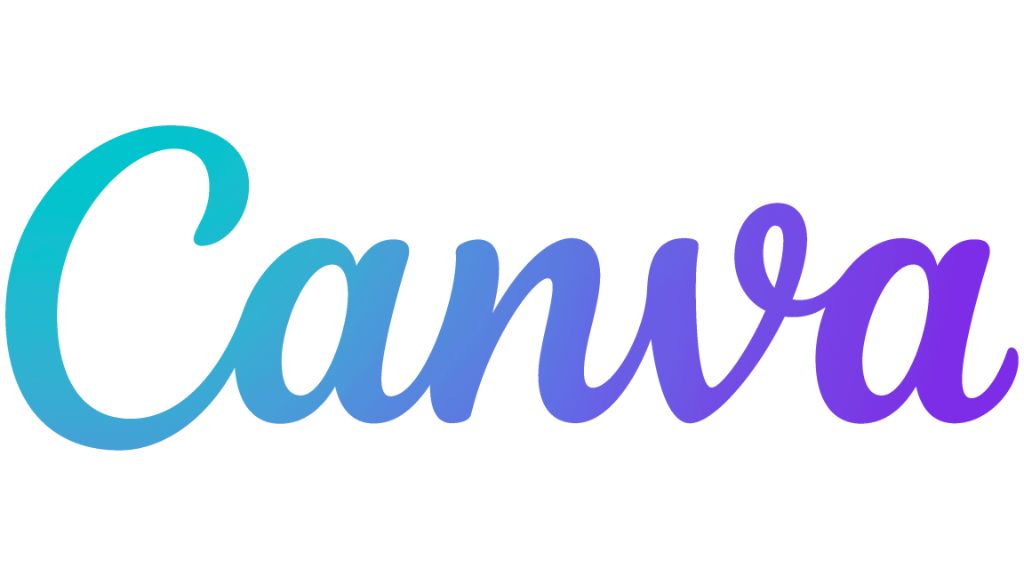
Levelling the playing Field for people with disability
You can also stream this episode on Spotify or Apple Podcasts.
Episode Overview
In this episode we speak with Joel Sardi about the hard-hitting topic - the unchanged employment status of people with disability in Australia over the last 30 years. Joel’s advocacy began after a life-changing spinal cord injury in 2014, which resulted in him becoming a 'C-5' Quadriplegic. He is now part of the team at theField.jobs, which is a groundbreaking new job listing site built by and for people with disability that actively connects people with disability with jobs from inclusive employers.
Meet Our Guest
On the 31st of August 2014, Joel Sardi had a fall and broke his C2, C5, T3, T4 & T5 vertebrae. The injury caused irreparable spinal cord damage. Joel is classified as a “C-5'“ Quadriplegic. Joel is paralysed from the shoulders down. He has no movement in his legs but fortunately activate his biceps, forearms and wrists.
With the injury originally occurring in Adelaide where Joel was working, he was brought to the Royal Adelaide Hospital where he stayed for 10 days, before being airlifted to Melbourne's Austin Hospital. He spent the next 12 months at The Royal Talbot Rehabilitation Hospital where he underwent extensive rehab sessions to further improve his skills and learn to adjust to life as a quadriplegic before moving home. Joel had been serving in the Australian Army for the past 5 years as a Rifleman at 7RAR, Adelaide when he had his accident. He had recently returned home from a 8 month deployment in Afghanistan in December 2013.
Joel has over five years of experience in business development, sales, and account management who currently works as an account manager at theField.jobs, a leading platform for remote work opportunities across various industries and sectors. Joel’s goal is to use my skills and knowledge to create positive and lasting connections between remote workers and employers.
Key Quotes
"I wasn't aware of the statistics about the one in five Australians who live with disability until I broke my neck. Before my injury, I had no direct connection to disability, and like many, I had misconceptions about what people with disabilities could do."
"The Field is forever growing, forever being shaped by the user's experiences. When we first launched, we consulted with a limited number of people. Now, with a broader audience, we continuously adapt based on feedback to improve accessibility."
"Innovation in technology is born out of people with lived experience or the way they consult with tech experts in making things accessible. For example, many features on smartphones were developed with input from people with disabilities, making these devices some of the most accessible technology available."
Episode Transcript
To access a transcript of this episode click on the drop-down button below.
Image Gallery
[00:00] Viv
We would like to acknowledge the traditional owners of the lands on which we record this podcast, the Gadigal people. This is their land, never ceded, always sacred and pay respects to the elders past, present, and emerging of this place.
Coming up on Remarkable Insights...
[00:17] Joel Sardi
And then one day they got the opportunity to come and meet him on a site visit. He said, just come out the back. I went to his office while the taxi drove me there. I was in there and I went to go to the office and there was a stair to get in, so I called him and said, 'I'm out the back. I can't come up the stairs'. He said, 'yeah, just come up the stairs. I'm in here'. I said ' I can't go upstairs. I'm in a wheelchair'. It's like I told him he just won 10 million the way he responded. 'What? What do you mean? You're in a wheelchair?'
[00:44] Viv
Did you know the employment of people with disability in Australia hasn't improved in 30 years, but why? Joel Sardi is part of a team of people with disability who founded and created an accessible job search site here in Australia. If Remarkable doesn't hire me for Season 3, I might need it. Joel Sardi, hello! And please could we start with a visual description of yourself?
[01:06] Joel Sardi
Sure. So I'm sitting in my bedroom slash office at home wearing a pink hoodie. Some black over ear headphones. Sitting in front of my laptop.
[01:16] Viv
For those who maybe aren't aware of the amazing work you do and the person you are, would you mind just starting by giving a bit of an introduction of who you are and how you got to where you are currently?
[01:27] Joel Sardi
Yeah. Okay so we've already touched on my name. I work for a company called 'The Field'. The Field is an employment site built by and for people with disability, actively linking them to inclusive employers. So in essence, it is a job site built by people with disability with the understanding of some of the barriers to meaningful employment and my role now is through account management, but in the early days, it was through consulting, through my lived experience. Because I am a person with disability, I've got a spinal cord injury consulting on the experiences I've had to achieve or to actually attain meaningful employment.
[02:02] Viv
Before we dive into The Field I would love to know about your sort of opinion of the disability space and how that impacts employment and the reality of employment for people with disabilities. How that changed sort of your knowledge prior to your accident to afterwards.
[02:22] Joel Sardi
I wasn't aware of the statistics about the one in five Australians who live with disability. I had no direct connection to disability until I broke my neck and I really didn't see too many barriers to employment until I actually acquired my disability. And it was just one of the biggest ones was people's misconceptions around what I could do, people put a ceiling on my capability purely because they didn't understand disability as such. And I'll put my hand up and say that I was probably one of those people that had a misconception about disability before I acquired my disability.
[02:54] Viv
It's interesting because I learned about my diagnosis of autism and ADHD only in the last couple of years. And it's been such a cool journey for me because I feel like I've worked in the disability space for many years, and so I've learned a lot about it. It's just funny that it took me so long to realise these things about myself. But yeah, anyway, we laugh.
[03:15] Joel Sardi
How old were you when you got your diagnosis?
[03:18] Viv
Last year? 28!
[03:20] Joel Sardi
Wow.
[03:21] Viv
Welcome!
[03:22] Joel Sardi
Yeah.
[03:23] Viv
But the experience on The Field was a cool thing because just in being on it, I was exposed to so many other things that I could ask for and in a job that I didn't know I could. And I think that there is this really cool piece in what you're doing as well, which is just creating a safe space. Some people don't even know they need it yet. But I suppose I'd love to learn about how the actual creation of the tech took into account the nuances and the experience of disability and how you've created a website with people in a real co-design way.
[04:02] Joel Sardi
It's like nothing for us without us. A lot of the technology advancements we see through smartphones have been born out of people's consulting through disability, or people with disability consulting to, for example, Apple, you look at a mainstream device such as a smartphone, it's almost now an iPhone one of the most accessible pieces of technology that exists similar to The Field, a lot of the accessibility features and the tech innovation that exists on The Field are there through people's consult, through their lived experience of having disability. That is where the tech innovation lies. Long story, but that is where it lies through actually being built by people with disability and consulting, with people with disability.
[04:49] Viv
And do you find the work that you do firstly, is a lot of it virtual? And if so, Do you find that people might not know that you are a \wheelchair user? And that sort of changes the tone of conversations and then they might find out later on, and then again, there's a bit of a tone change?
[05:09] Joel Sardi
That's a really good question because I never used to introduce myself as somebody with disability, or my connection to disability is this, which is something I've learnt and started to put into my daily routine when now working at The Field. I used to work in recruitment and there's a classic story I share where I had an account I was managing and the guy I was speaking to for five years over the phone and it was always virtual, a hundred percent of it. And then one day I got the opportunity to come and meet him on a psych visit, and I went there and he said, 'just come out the back'. I went to his office. Well, a taxi drove me there, I was in there and went to go to the office and there was a stair to get in, so I called him and said, 'I'm out the back. I can't come up the stairs'. He said, 'yeah, just come up the stairs'. I'm here. I said ' I can't go upstairs. I'm in a wheelchair'. It's like I told him he just won 10 million the way he responded. 'What? What do you mean you're in a wheelchair? I didn't even know that'. And why does it matter? But yeah, that was a funny experience. For five years I've been talking to this guy and he never knew because I didn't think to share it.
[06:10] Viv
And now do you choose to share it from a fairly early point and why is that?
[00:06:14] Joel Sardi
I do it because it's not my identity, but it definitely creates who I am in regards to my lived experience. And given this is a job site built by four people with disability. I've had direct input into some of the features on here, which have been changed a lot and updated and improved based on something I said. But yeah that's what we're most proud of, we're disability led and driven, and I'm one of those people.
[06:39] Viv
So cool. And how many like what is the diversity of disability employed at The Field? How many people are on your team?
[06:47] Joel Sardi
We work with Get Skilled Access as well, they're our sister company and I think we're 80, 85% disability led overall, and there would be over 45 staff.
[06:57] Viv
We're looking at the platform that you built with The Field and it has been built with quite a diverse range of people with disability, and you've already had that use of feedback when you've opened it up to a wider audience and you've had a greater range and diversity of disabilities that have come in and given you feedback. What does the future of that look like and how much feedback have you already gotten that's changed the platform as it stands?
[07:21] Joel Sardi
When we built it, we could only consult with a limited number of people, although it was still a lot, as soon as we went public facing. We did receive feedback from people with different disability in regards to what was accessible and what wasn't for their platform. So we immediately took that on board and tried to adapt as much as we could in so much as release 1.1 to 1.2 to three to 1.4, so on or so forth. But I guess that's the beauty of being a platform willing to listen and willing to learn because like I said, one in five Australians have disability and when we initially built it, it was within the confines of who we were consulting with, but now it's public facing the country to the world really. You can access this website from another country. I guess that's the beauty of it. It's forever growing, forever being shaped by the user's experiences. Tomorrow there could be someone new access the platform. Never seen it. Never heard of it, and said, 'Hey I want this to change. I want this feature built in because I can't access this'.
[08:21] Viv
So wonderful. And is part of the equation also eventually gonna be a bit of an education piece on the types of technology that organizations can provide that make jobs accessible to people?
[08:36] Joel Sardi
Yeah. There's actually an opportunity on the platform to conduct microcredentials, inclusive recruiters course or inclusive recruitment strategy and the employer then entertains a badge that we give them, we certify them with. Which allows them to celebrate what they've learnt, what they can actually carry out in the workplace based on the training we've provided them. And that's free.
[08:56] Viv
That's awesome. And I know you also have a tool on your platform, which is an inclusive language checkup. Can you speak about the importance of that?
[09:04] Joel Sardi
Yeah. Vivien, could you give me an example of a term that would be used for somebody with Autism that's not inclusive or offensive? Actually, don't give me it because that's probably not a good idea. Maybe think of a term and just imagine that the employer was writing a job description and has said that exact word and thought, 'Geez. I wonder if I can use this? To make sure I can, I'm gonna go to this option called the Inclusive Language Tool', which is free on The Field, click on it and it's like a 'Watch Your...' Document tool. You enter that word that the employer's not so sure about if he or she can use it, and for example, for someone like me who's a wheelchair user, Perhaps it says 'wheelchair bound'. Now the employer goes to hit check and it highlights wheelchair bound and the word that you were thinking of as well and says, 'Hey, we've noticed you've used these terms. They're not inclusive because they are... they indicate that the person is bound to the wheelchair' or they indicate that 'this is something for somebody with Autism that is incorrect or more inclusive'. ' How about you try this term' and then you can hit edit and it copies that text into the updated version. Allows you to become more inclusive. You learn along the process. That's how we learn we make mistakes and you become more inclusive.
[10:21] Viv
Yeah. And I guess it's an exciting element of that, of the future of how AI ChatGPT could be used on the platform to help people write in a way that ensures inclusive language.
[10:34] Joel Sardi
Yeah, ChatGPT's got unlimited potential obviously because of what it represents, but it doesn't understand the nuances of a country or its culture or its beliefs. So that is where the inclusive language tool is so unique because it's built by Australians living with disability.
[10:51] Viv
That's awesome. And we'd like to end these conversations by asking our guests to leave listeners and people enjoying the show with a Remarkable Insight. What's something you'd like to share for them to think about?
[11:04] Joel Sardi
I think of innovation in technology as the cousin to disability because the innovation in technology is born out of people with lived experience or the way they consult with tech experts in making things accessible or ways that make their lives a bit easier. So I guess that's my Remarkable Insight in regards to the relationship between technology and disability.
[11:27] Viv
Thank you to our guest, and hopefully you found your own Remarkable Moment. Make sure you subscribe to the podcast and follow our Instagram @remarkable_tech for unheard moments from this episode. Talk with you all on the next one.



.png)
.jpg)


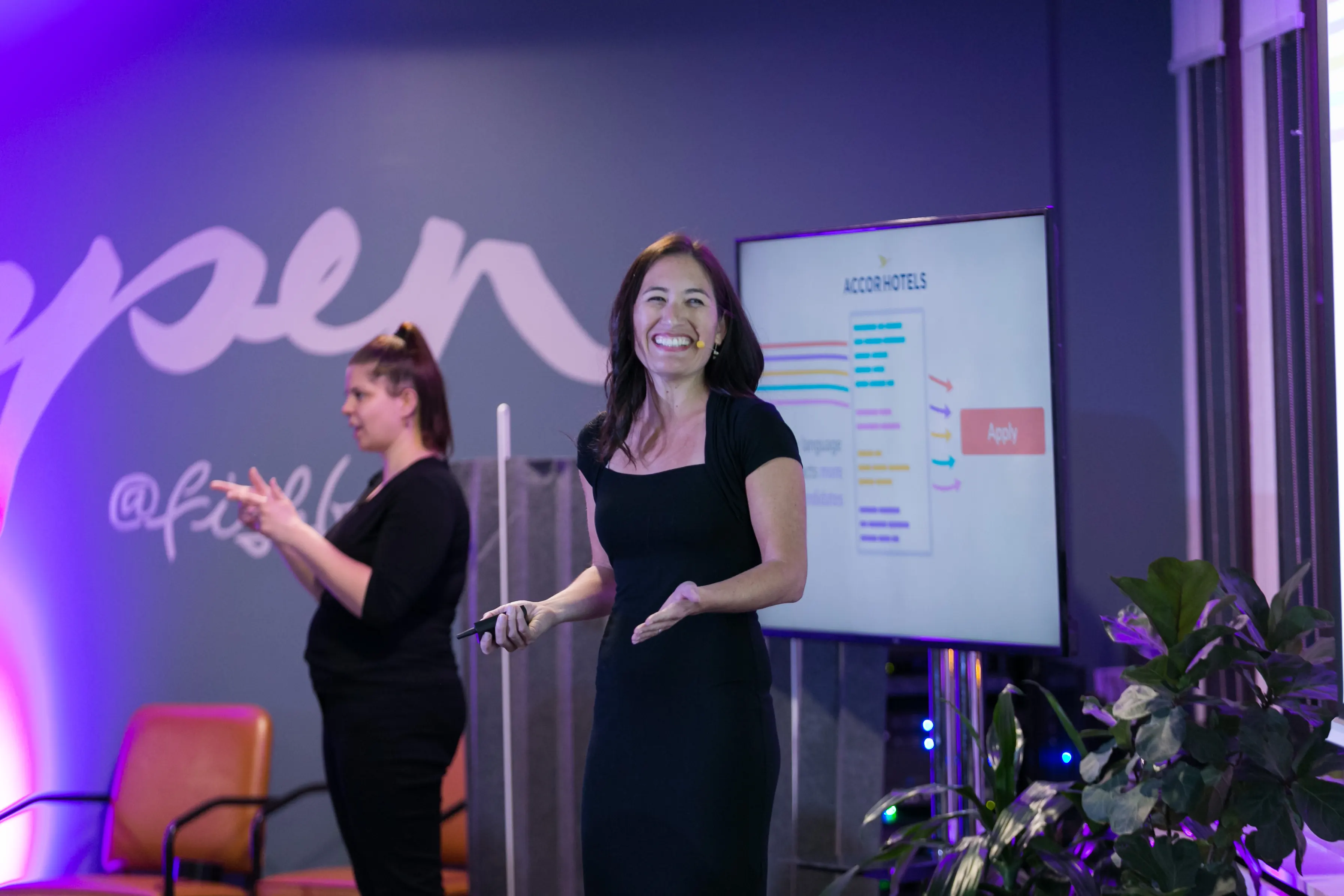

.jpg)
